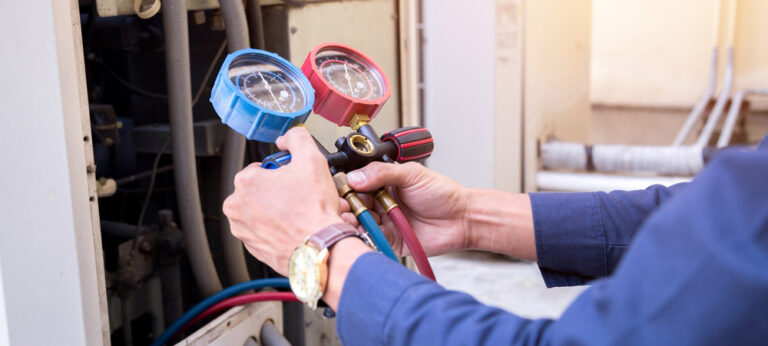Commercial cooling technology is essential to keeping your Irvington, AL business productive and comfortable. Still, it can be a substantial operating expense for retail spaces, offices, warehouses and other facilities. If your system struggles to keep up or your commercial utility bills are rising, use these seven steps to cut your costs.
1. Schedule Regular HVAC Maintenance
Preventive maintenance is an effective way to avoid expensive breakdowns and keep your cooling system efficient. Commercial HVAC units are sophisticated systems that need routine inspections and service by licensed professionals.
This maintenance typically involves checking and cleaning coils, inspecting refrigerant levels, replacing filters and calibrating sensors and thermostats. A well-maintained system uses less energy, runs more efficiently and experiences fewer surprise breakdowns.
2. Invest in a Building Automation System (BAS)
A building automation system or building management system automates and integrates your commercial lighting, HVAC and other systems. Platforms like these optimize cooling by using real-time data, such as the time of day, occupancy and outdoor weather conditions.
Automating temperature settings and schedules ensures cooling only occurs where and when necessary, reducing energy bills and waste. Advanced systems keep you ahead of problems by alerting you to performance issues.
3. Upgrade to Energy-Efficient HVAC Equipment
Check your business records to see how old your commercial cooling system is. If it’s more than 10 to 15 years old, a high-efficiency model replacement can generate significant savings. Options among modern systems include features such as advanced economizers, variable-speed compressors and high SEER2 ratings.
An upgrade might include a high up-front investment. However, your business can enjoy long-term energy savings and potential tax incentives or financial rebates that you need to factor into your cost-benefit analysis. An HVAC professional can analyze your building’s needs and help you crunch the numbers.
4. Optimize Airflow With Professional Ductwork Evaluation
Your AC installation might have unbalanced airflow, air leaks and poor duct insulation that results in higher operating costs and reduced cooling efficiency. Have a commercial HVAC technician inspect your ductwork to find and seal leaks, suggest insulation improvements and adjust airflow to prevent overcooling in certain zones. Properly balanced and sealed ducts promote even distribution of conditioned air, improving comfort for the building’s occupants and reducing strain on the system.
5. Implement Zoned Cooling Systems
Zoned cooling lets you manage temperatures independently in various areas of your building. This approach is particularly valuable for facilities that have varying usage patterns. Lobbies, conference rooms and storage spaces might not need cooling all the time.
Consult a professional HVAC contractor who can design and install effective zoning systems. These use separate thermostats, dampers and advanced controls to reduce energy waste and maximize efficiency.
6. Schedule an Energy Audit
An energy audit by a qualified professional offers a comprehensive look into the energy use of your commercial building. This assessment can reveal hidden inefficiencies, such as air leaks, poor insulation, outdated lighting systems or HVAC equipment that’s the wrong size for your structure.
Once the audit concludes, you’ll get a detailed report listing issues and actionable recommendations. Many of these can result in significant savings in both general energy use and specific cooling costs.
7. Work With a Commercial HVAC Partner Year-Round
Reducing your cooling costs isn’t something you do once. You need to ensure continuing monitoring and adjustments as occupancy patterns and seasons change and your equipment ages.
Your long-term plan needs to include partnering with a commercial HVAC service provider who ensures you have access to expert guidance now and tomorrow. Find professionals who can help you optimize system performance, manage upgrades, adjust schedules and stay compliant with local regulations.
Cooling costs don’t need to constantly strain your business finances. Implement smart controls, upgrade outdated equipment and invest in regular maintenance as part of your broader plan to cut commercial cooling expenses. Contact Air Specialty for all your commercial HVAC needs and services.
Image provided by iStock

